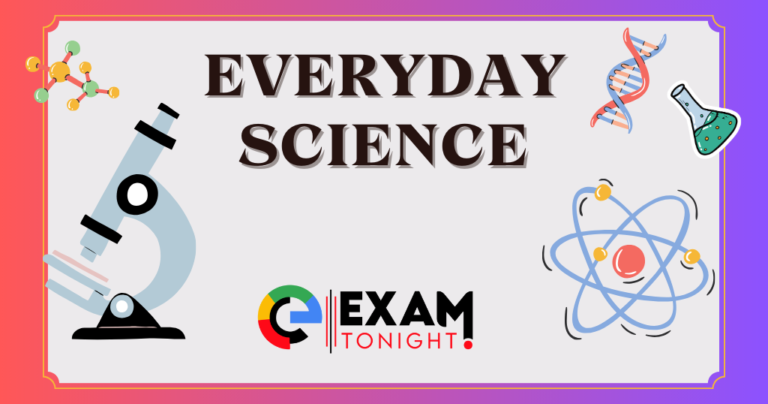Everyday Science MCQs

Everyday science Multiple Choice Questions (MCQs) typically cover a wide range of topics including physics, chemistry, biology, earth sciences, astronomy, health, and medicine. Our online everyday science-based test will prepare you for academic success in exams. Here you may discover the most repeated everyday science MCQs, comprehensive explanations of the questions as well as their answers. Every exam given by organizations such as the Federal Public Service Commission (FPSC), Khyber Pakhtunkhwa Public Service Commission (KPPSC), Punjab Public Service Commission (PPSC), Sindh Public Service Commission (SPSC), Balochistan Public Service Commission (BPSC), Azad Jammu & Kashmir Public Service Commission (AJKPSC), National Testing Service of Pakistan (NTS), Pak Army, Navy, PAF, ISSB, and others includes a General Science multiple-choice question (MCQ).
Be a part of our community! Share your latest MCQs on everyday science with us by Submitting them here. Your valuable contributions enhance the learning experience for everyone.
A. Vitamin A
B. Vitamin B
C. Vitamin C
D. Vitamin D
A. Carbohydrates
B. Proteins
C. Fats
D. Vitamins
A. Minerals
B. Fiber
C. Protein
D. Vitamins
A. Coal
B. Water
C. Crude Oil
D. Gas
A. Income per person
B. Income per family
C. Average income of a country
D. Average income of a city
A. increase in overall prices
B. Decrease in prices
C. Increase in the family income
D. Increase in the purchasing power
A. “Agent” only.
B. “Principal” only
C. Both on the agent and the principle.
D. None of the above.
A. Bill of exchange
B. Bill of lading
C. Letter of clearance
D. Bill of adjustment
A. Whole seller
B. Retailer
C. Producer
D. Importer
A. Unlimited liability.
B. Investment growth is hampered.
C. Double taxes.
D. All of these
